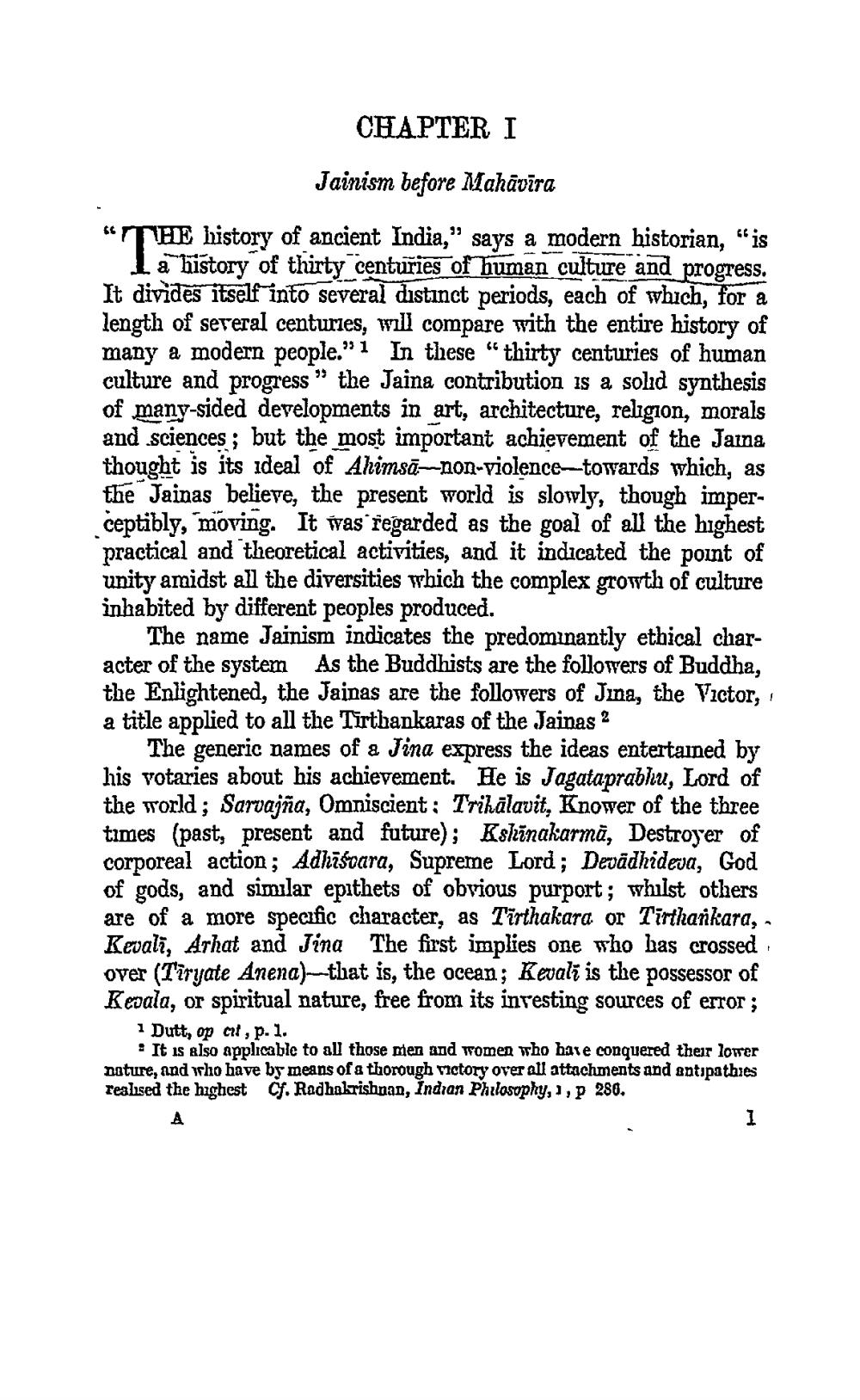________________
CHAPTER I
Jainism before Mahāvīra " He history of ancient India," says a modern historian, "is
La history of thirty centuries of human culture and progress. It divides itself into several distinct periods, each of which, for a length of several centuries, will compare with the entire history of many a modern people." 1 In these " thirty centuries of human culture and progress” the Jaina contribution is a solid synthesis of many-sided developments in art, architecture, religion, morals and sciences; but the most important achievement of the Jaina thought is its ideal of Ahimsā-non-violence-towards which, as the Jainas believe, the present world is slowly, though imperceptibly, moving. It was regarded as the goal of all the highest practical and theoretical activities, and it indicated the point of unity amidst all the diversities which the complex growth of culture inhabited by different peoples produced.
The name Jainism indicates the predominantly ethical character of the system As the Buddhists are the followers of Buddha, the Enlightened, the Jainas are the followers of Jina, the Victor, a title applied to all the Tirthankaras of the Jainas 2
The generic names of a Jina express the ideas entertained by his votaries about his achievement. He is Jagataprabliu, Lord of the world; Sarvajña, Omniscient: Trikālavit, Knower of the three times (past, present and future); Ksliinakarmā, Destroyer of corporeal action; Adhīšvara, Supreme Lord; Devādhideva, God of gods, and simular epithets of obvious purport; whilst others are of a more specific character, as Tīrthakara or Tirthankara, Kevali, Arhat and Jina The first implies one who has crossed over (Tiryate Anena)--that is, the ocean; Kevalī is the possessor of Kepala, or spiritual nature, free from its investing sources of error ;
1 Dutt, op cit, p.1.
. It is also applicable to all those men and women who hare conquered their lower nature, and who have by means of a thorough victory over all attachments and antipathies realised the highest Cf. Radhakrishnan, Indran Philosophy, , 280.




